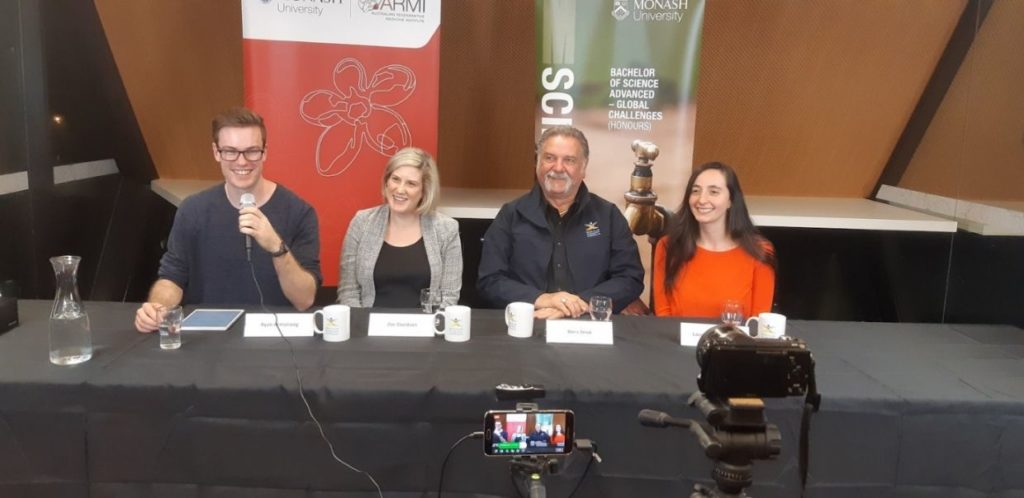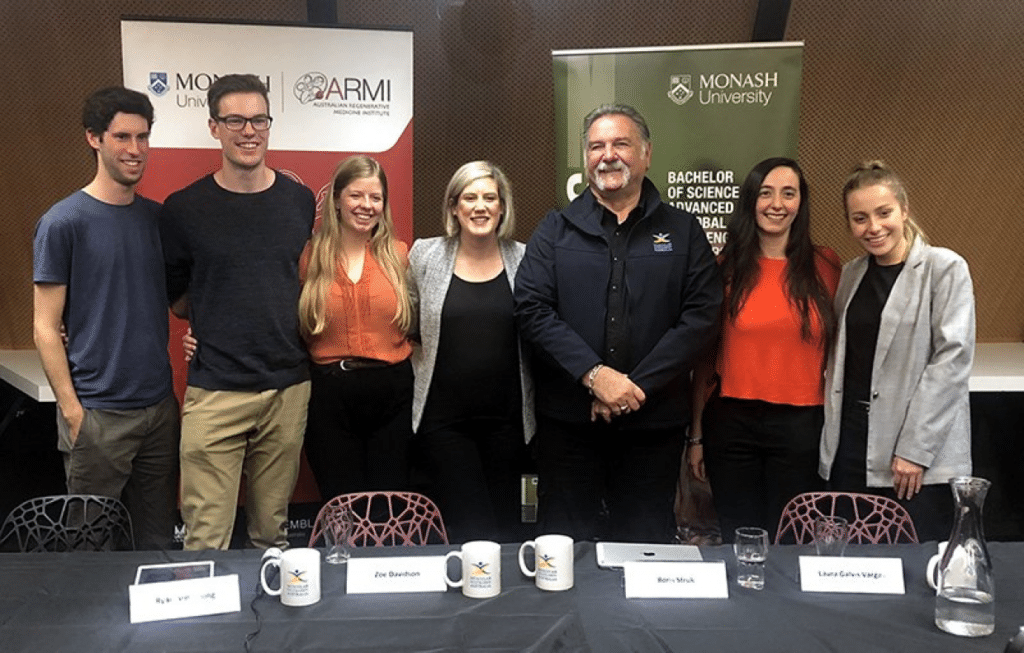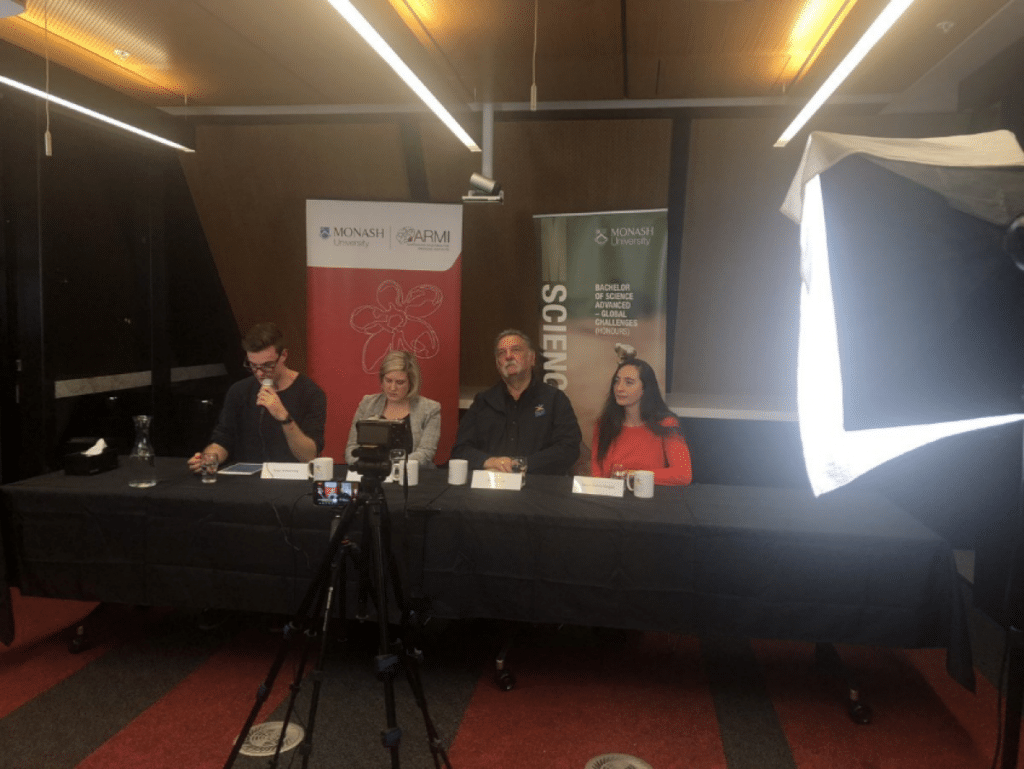Tackling #GlobalChallenges with Muscular Dystrophy Australia

In collaboration with ARMI (Australian Regenerative Medicine Industry) and Monash University’s Global Challenges students, Muscular Dystrophy Australia (MDA) delivered its first live ‘Ask me Anything’ panel on Facebook – and it was an absolute hit. Critically, the event highlighted the importance of collaboration in developing more engaging and impactful science communication to the public.
Hosted and run by MDA, the panel—featuring Boris Struk, MDA; Laura Glavis Vargas, ARMI and Dr Zoe Davidson, Dept. of Nutrition, Dietetics and Food—explained the role of basic research and regenerative medicine to the muscular dystrophy (MD) community. They discussed several topics within MD research, and the live video attracted more than 1000 views. Live viewers had the opportunity to ask questions and hear from those at the forefront of this important research. This event, an initiative designed by Monash University’s Global Challenges (GC) students, demonstrated the value of collaboration across researchers and the community.
This unique Global Challenges program encourages and teaches students to approach issues with both science and business skills. For the third year, a Global Challenges student cohort joined ARMI as part of the program’s project-based learning approach. Working alongside ARMI, the students were tasked with helping the Institute expand its reach by creating innovative ways to engage with the public. Focusing on accessibility and the ability to reach more of the MD community, the students designed a live Q&A panel event. Students were further mentored by ARMI’s communication manager, Emma Gallaher from The Social Science, providing them guidance in live event production and social media best practise.
“ARMI has been a sensational experience” commented Ruby Bethune, one of the Global Challenge students. “Engaging with the research institute has been a wholesome experience, and we’ve gained invaluable insight into the importance of social media in raising awareness for research. We also learnt that running a panel – no matter how easy it may seem – is never simple!”
Boris Struk, Executive Director of MDA, was delighted with the impact of this live event and the impact of this collaboration in helping to build continued awareness for the disease. Boris knows the importance of effective science communication and of these types of collaborations, particularly given his involvement with MDA for 30 years. In the early years of his time with MDA, little was known about the disease. Since then, Boris has helped raise both awareness in the community and critical funding (over $43 million for medical and scientific research) in addition to the provision of support services to the national MD community.
“The enthusiasm of the Global Challenges’ students was fantastic and makes you want to be involved!” commented Boris. “And it’s a three-way street. MD Australia benefited as well as the Global Challenges’ students and ARMI. A win-win-win! Given the success of our work with them, I’m quietly hopeful they will remain ambassadors for MDA.”
For ARMI Research Fellow, Dr Alasdair Wood, who supervised the Global Challenges students, the GC course showcases the importance of collaboration. It also represents the positive (and necessary) steps that undergraduate students should be taking to better prepare themselves for the future of science communication.
This collaboration was an illustration of the breaking down of barriers between organisations and getting everyone moving together.” commented Alasdair. “This is the future of science and the Global Challenge students really encompass this mindset. By being trained in business and science, dealing with communication challenges just becomes part of the job. Our relationship with the Global Challenge Course is founded on aiming to go past the usual administrative challenges that hinder science communication to see what can really be achieved. Thinking outside of the box is something both ARMI and the GC students love to do, this is probably why we work so well together.”
Encouragingly, this collaboration shows no signs of slowing down, with even larger events planned in the future. Indeed, there is already a long-term plan to invite more students, including an Honours cohort, to work on citizen science for MDA. With such continued and mutually beneficial collaboration between MDA, ARMI and the GC students, we look forward to seeing their future projects.
Behind the scenes of MDA’s live Q&A


To learn more about MD Australia, click here.
To learn more about the Global Challenges program, click here.
